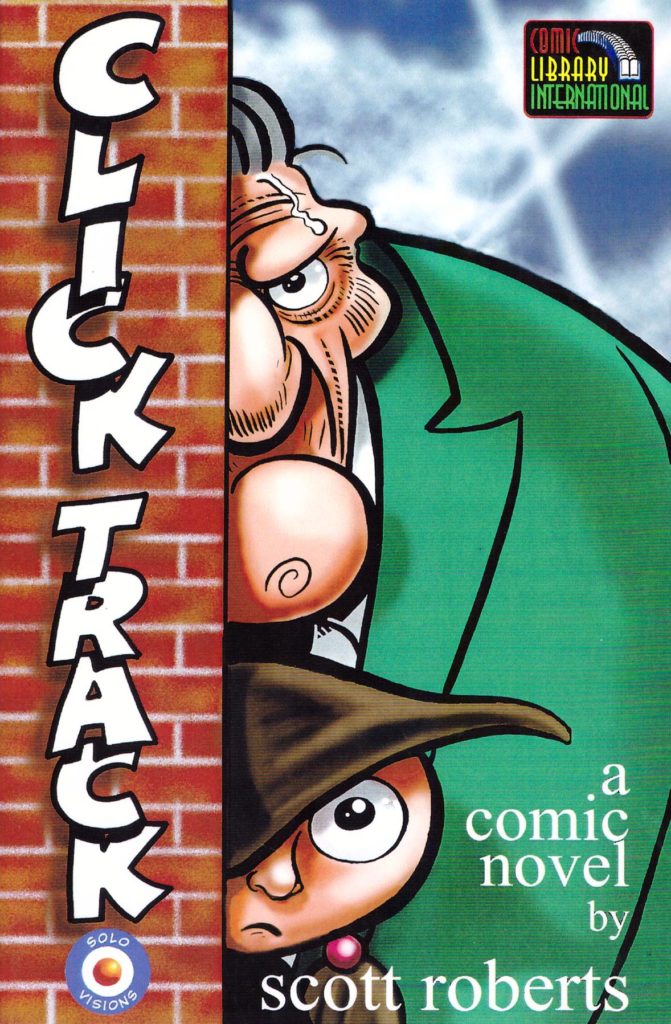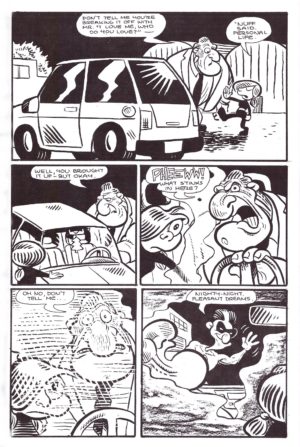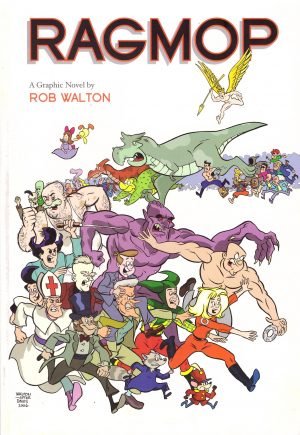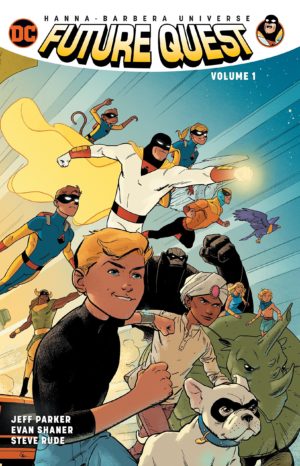Review by Ian Keogh
Before an ill-advised and out of touch 1969 movie in which he led an air strike on Woodstock, Click Track was the world’s most famous film star, his career built on action films where he arrived in time to save the day. Thirty years later he’s about to make his comeback, but before shooting starts he’s abducted and placed in a death trap. Fortunately stuntwoman Billie Boyd is also present.
It seems Scott Roberts started with the intention of satirising the reactionary tendencies of John Wayne, but better instincts take over, and while Click is still a punch first and ask questions later kind of guy, he becomes more palatable amid confusing circumstances. Who Framed Roger Rabbit? is perhaps a more accurate touchstone, as Click and Billie are thrown into a mystery about subversive goings on in Hollywood. Roberts plays the contrasting couple off each other satisfyingly as they follow one clue to the next, continually making jokes about how the film industry operates, each person they meet stranger than the one before. Introduced early, Click’s enthusiastic neighbour Elmo isn’t as funny as Roberts seems to think, but his presence is restricted to a few scenes.
A Kurtzmanesque looseness characterises Roberts’ cartooning, the characters shambling, rolling and slouching rather than walking conventionally, but all with weight and depth to them. He has a fine way with caricature also, so when real people turn up they’re recognisable even if never actually named. Some of the stranger types are designed to have a memorably grotesque appearance, and Roberts plays with the conventions of wacky comedy, a character named the Messenger always turning up unexpectedly.
The cartooning and general comic tone disguises Roberts having some smart observations about people and the way Hollywood operates almost entirely on facades. Click and Billie are given neat personalities to start with, after which Roberts digs down to add considerably more depth than might be reasonably expected from what’s otherwise a light action comedy with nods to James Bond. The ending is whimsical, and a little more consideration of alternatives was in order, but it doesn’t negate what came before. You’ll certainly have laughed, you may have cried, and you’ll wish Roberts had produced more comics.





